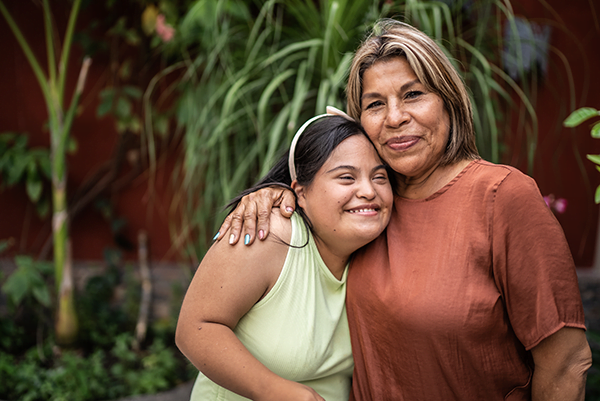
Financial Challenges of Retired Parents of the Disabled
Retired parents who have a child with a disability say the income they and their children receive from Social Security is critical to their survival. Yet, for some, it still falls short of what they need after years of financial struggles, career tradeoffs, and premature retirements stemming from years of caregiving.
Without Social Security’s monthly check, “I’d probably be out on the street,” one parent told University of Wisconsin researchers in one of 12 interviews they conducted with the retired parents of children with disabilities.
An older mother who fears her daughter’s disability benefits will be stopped when she turns 18 worries they might have to give up their two-bedroom apartment. “Am I going to be able to afford it,” she asked. Her Social Security retirement benefit is only $400 more than the rent. “And that doesn’t leave enough after bills to pay for anything.”
It’s clear that many of these parents struggle because they have shaped their careers around caring for their children. This has meant part-time work or retiring early, taking an unpaid leave to tend to a child’s medical needs or to cover for the loss of a paid caregiver, or finding a lower-paying job that provides the flexibility they need to fit the demands of caregiving.
One mother stressed she must be home from work by 3 p.m. when her daughter returns. “She cannot stay by herself,” the mother said. “She’s made mac and cheese and started a fire before.”
In addition to the interviews, the researchers also analyzed national data from a U.S. Census Bureau survey that revealed the myriad hardships retired parents face as they juggle caregiving and high costs while trying to live on limited incomes.
For example, while the typical family with a disabled child receives more from Social Security than other retired parents, their income from all sources – including retirement savings, pensions, or part-time work or only one spouse working full-time – was $61,000. This compares with nearly $87,000 in income for the other retired parents surveyed.
As a result, the parents of a child with a disability are more likely to fall below 200 percent of the federal poverty level, to be food insecure, or to have missed a utility, rent or mortgage payment, according to the data analysis. The reasons behind these financial difficulties was revealed in interviews. Parents may, due to their caregiving duties, leave the labor force early or withdraw money from retirement savings to cover the child’s care. One wife said her child’s medical treatment “wiped out” her husband’s 401(k).
The financial concerns are even greater for single parents, who are more likely to be food insecure, and for parents of color. Social Security benefits are more critical to their financial survival too.
The researchers described the retired parents’ heavy reliance, by necessity, on Social Security for their own and their disabled child’s needs as a double-edged sword. “While these benefits were critical for family survival,” they said, “for some families, they were also insufficient for fully meeting family economic needs.”
To read this study by Molly Costanzo, Lisa Klein Vogel, and Liesl Hostetter, see “ ‘It’s Hard to Know What to Expect’: Parents of Children with Disabilities in Retirement.”
The research reported herein was derived in whole or in part from research activities performed pursuant to a grant from the U.S. Social Security Administration (SSA) funded as part of the Retirement and Disability Research Consortium. The opinions and conclusions expressed are solely those of the authors and do not represent the opinions or policy of SSA, any agency of the federal government, or Boston College. Neither the United States Government nor any agency thereof, nor any of their employees, make any warranty, express or implied, or assumes any legal liability or responsibility for the accuracy, completeness, or usefulness of the contents of this report. Reference herein to any specific commercial product, process or service by trade name, trademark, manufacturer, or otherwise does not necessarily constitute or imply endorsement, recommendation or favoring by the United States Government or any agency thereof.
Comments are closed.







I’m an LVN/LPN through a nursing agency, and I have taken care of various patients at their homes. These families need more help of various kinds! I was also a caregiver to my father, with dementia, in his last years.
Excellent article! Was great to learn about the challenges of parents of the disabled.